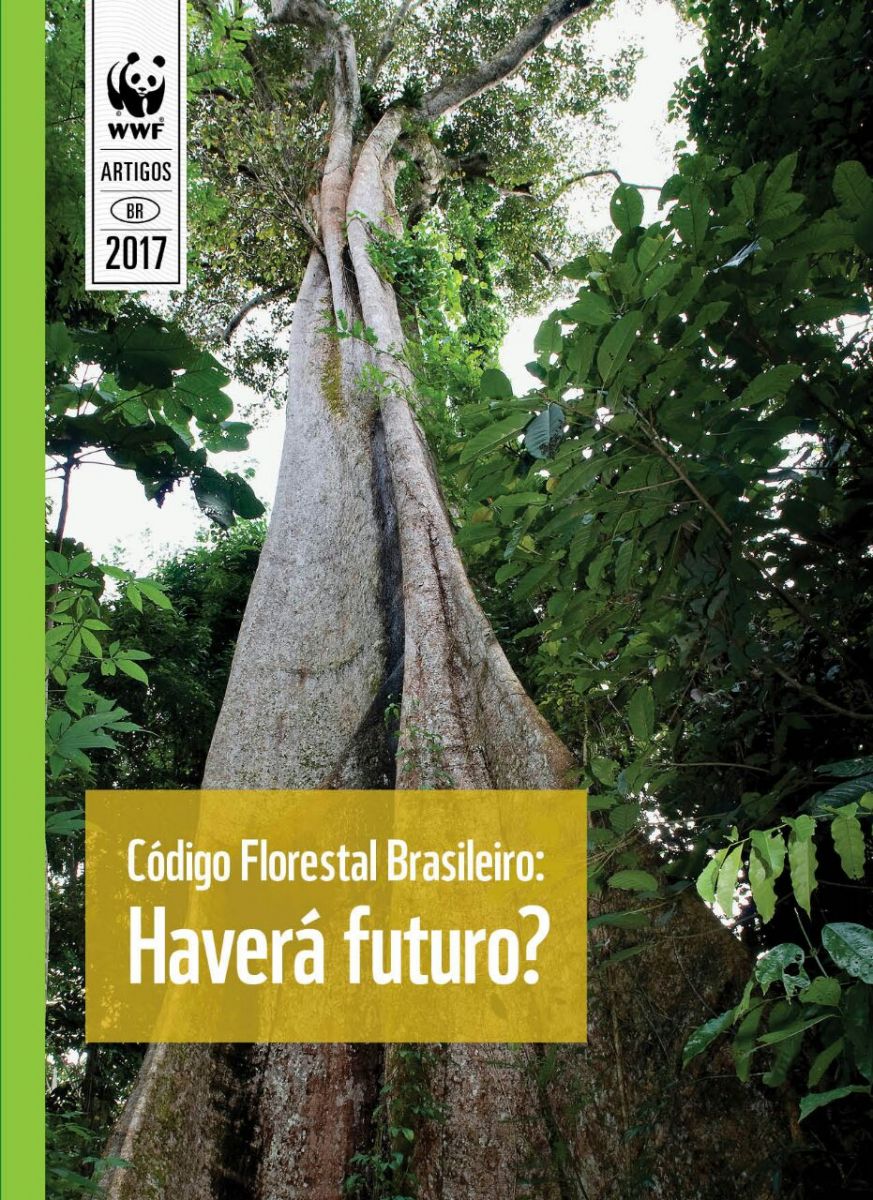
O WWF-Brasil lançou na última semana no Memorial Darcy Ribeiro, na Universidade de Brasília, a publicação Código Florestal Brasileiro – Haverá Futuro? O evento encerrou o seminário técnico sobre o Cadastro Ambiental Rural promovido pelo Observatório do Código Florestal e Instituto de Pesquisa Ambiental da Amazônia.
O livro tem distribuição gratuita e versão eletrônica acessível aqui.
A publicação traz doze artigos de opinião inéditos assinados por diversos especialistas que discutem o tema do ponto de vista da ciência, das políticas públicas, da gestão de governo, do mercado e da sociedade civil.
É uma contribuição do WWF-Brasil ao debate sobre o destino do novo Código Florestal (Lei 12.651/2012,) que completa cinco anos em 2017 em um ambiente de incerteza quanto ao seu futuro.
Trata-se de uma das mais importantes políticas públicas para um país megadiverso como o Brasil, líder mundial na produção agropecuária, com um imenso patrimônio florestal a ser conservado e passivos ambientais igualmente significativos a serem resolvidos.
Nesses últimos cinco anos, a lei florestal deu apenas seus primeiros passos rumo à implementação qualificada que se pretende dar a ela.
O cadastro das propriedades rurais já é uma realidade, embora a validação das informações declaradas ainda seja uma meta a ser atingida, assim como as etapas posteriores de regularização ambiental, objetivo central da lei.
“O recente aumento das taxas de desmatamento na Amazônia e a pressão sobre remanescentes de vegetação nativa do Cerrado indicam um cenário em que o risco de retrocessos no curso de implementação desta lei é iminente”, explica Jaime Gesisky, especialista em Políticas Públicas do WWF-Brasil e organizador da publicação.
“O Código Florestal precisa chegar à maturidade plena para nos garantir a perspectiva ambiental, climática, econômica”, diz ele.
É por isso que o WWF-Brasil decidiu convidar alguns dos mais destacados nomes ligados à discussão do tema no país para trazer à luz as reflexões sobre o futuro da lei florestal.
De acordo com o organizador, o objetivo da publicação é alimentar o debate em sua complexidade, na perspectiva de que a lei se cumpra plenamente.
Para Maurício Voivodic, diretor executivo do WWF-Brasil, é fundamental que a sociedade mantenha o fluxo de ideias para criar e manter em funcionamento políticas públicas robustas, capazes de conduzir o Brasil nas questões cruciais que o século 21 coloca.
Na opinião dele, a sustentabilidade no que diz respeito à conservação florestal é uma das questões chaves a definir o futuro que queremos projetar para as atuais gerações. “As escolhas que fizermos agora dirão se teremos futuro – ou não”.
O Observatório do Código Florestal está em busca de uma pessoa jurídica para prestação de consultoria jurídica especializada para a […]
O Observatório do Código Florestal está em busca de pessoa jurídica para prestação de serviço especializado de assessoria de imprensa […]
O Observatório do Código Florestal está em busca de uma pessoa jurídica para a elaboração de Nota Técnica contendo análise […]
O levantamento produzido destaca vocação produtiva, desafios e demandas ambientais e foi apresentado na Assembleia Legislativa e na Secretaria de […]